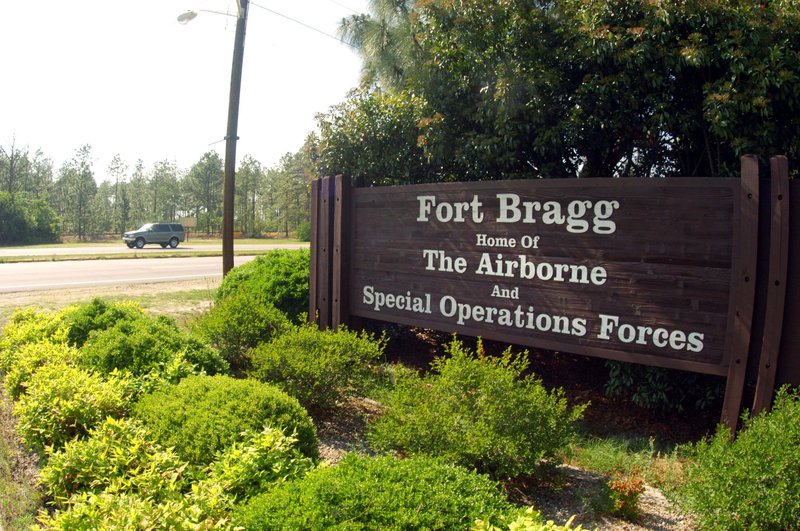Drug Trafficking in U.S. Special Forces: Journalist Seth Harp on ‘The Fort Bragg Cartel’
Article In The Thread

Logan Mock-Bunting/Getty Images
Aug. 12, 2025
President Trump recently threatened to use U.S. special forces to fight drug cartels in Mexico. But New America Fellow Seth Harp found that members of the U.S. military elite that Trump wants to deploy have actually collaborated with cartels in narco-trafficking schemes. In his debut book The Fort Bragg Cartel: Drug Trafficking and Murder in the Special Forces, out today, Harp investigates a string of unsolved murders at America’s premier special operations base and uncovers its connection to drug trafficking, fueled by a culture of cover-ups and corruption.
The Fellows program recently caught up with Harp about discovering a dark ripple effect of America’s “forever wars,” telling a true crime story about the military as a veteran, and building more transparent armed forces.
How did you first come across this story of corruption in the U.S. military, and what compelled you to pursue it?
In December 2020, I learned that two special operations soldiers had been found murdered at a remote training range on Fort Bragg, and that police did not have a suspect. That in itself was worth investigating. But then I learned that one of the victims was an active-duty operator on Delta Force, the most elite unit in the U.S. military, and was suspected of dealing drugs on base. At that point I knew there had to be more to the story—a lot more.
You served in the United States Army Reserve and did one tour of duty in Iraq. How did your military experience shape your approach to investigating this story? Were there times where it helped—or perhaps even hindered—your work?
I actually served in Iraq at the same time that my main character of the book, Billy Lavigne, did his first tour there. Although it took longer for him to lose faith in the post-9/11 wars, we both became disillusioned with the military and U.S. foreign policy as a result of events in Iraq. That sympathetic connection enabled me to much better understand his state of mind around the time that he went to work trafficking drugs in conjunction with an international drug cartel.
The book is classified as true crime, but it also delves deeply into history and politics. What draws you to true crime storytelling? How do you balance the benefits of telling these stories with the ethical challenges that come with the genre—such as the risk of sensationalizing crimes and the exploitation of participants?
Concerns about sensationalizing crimes and exploiting participants never entered into my thinking because I was scrambling to keep up with real events that were unfolding in real time. If anything, I was too hesitant in the beginning to publicize some of the most sensational allegations that I heard from my sources, including the existence of a cartel-like structure on Fort Bragg made up of Special Forces soldiers who were trafficking drugs from abroad into the United States. I later came to find out that such claims were no exaggeration at all.
Your reporting has uncovered a culture of drug use and trafficking within elite military circles. What have you learned about that culture, and what discoveries surprised you most during your investigation?
I was most surprised by how open and accepting my military sources were of widespread drug use in the Special Forces in general and Delta Force in particular. The attitude of tacit acceptance that prevailed was surprising because civilians have a very different picture in mind of elite troops, a carefully cultivated image jointly created by the Pentagon and Hollywood that fails to capture the lawlessness and hard-partying lifestyles of real-life special operations soldiers.
Your previous reporting on this subject in Rolling Stone help spur policy changes, including the Department of Defense Overdose Data Act of 2023. What further reforms do you hope the book will encourage?
I hope that my book will encourage broad reforms to the military that go beyond merely cracking down on drug dealing in the ranks. I believe that a quarter century of overreliance on special operators and secret military units to accomplish the national security objectives of foreign policy elites has led to the creation of a sharply divided two-tier military whose pathologies mirror those of our divided and profoundly unequal society. We need a more egalitarian armed forces that doesn’t hide behind military secrecy and that works for the good of the taxpayers who fund it, rather than the power games of unelected national security officials whose foreign policy adventures have proved so ruinous for our country.
You May Also Like
The Fiery Fall of the Wagner Group—An Excerpt from “Putin’s Sledgehammer” (The Thread, 2025): Read an excerpt from a new book by New America Senior Director Candace Rondeaux tracing the rise of the militant Wagner Group and its leader, Yevgeny Prigozhin.
New America Fellow Megan Garber on Entertainment, Misinformation, and More (The Thread, 2024): 2025 National Fellow Megan Garber dives into how our obsession with entertainment influences both misinformation and cultural shifts in this exclusive Q&A.
Follow The Thread! Subscribe to The Thread monthly newsletter to get the latest in policy, equity, and culture in your inbox.